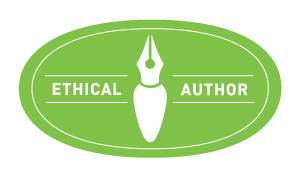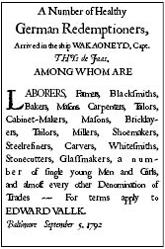Philadelphia’s Humane Society (for the recovery of persons apparently dead from drowning) was formed in the early 1780s by a number of gentlemen who hoped to emulate the success of similar established societies in Europe. It was funded via voluntary individual subscriptions.
In May 1782, society members reported that after much trouble in getting their apparatus as complete as possible, they were pleased to inform the public that the thing “may possibly do great good, but cannot do harm.”
The Pennsylvania Gazette printed the doctor’s report of a six-year old child who “happily recovered” from a near drowning using the methods proscribed by the Society:
“ON the 21st of March, 1782, about two o’clock, P.M. Rowland Oliver, a child, six years old, playing with some shavings on Knoxwharff, Southwark, accidentally fell into the Delaware, and there lay, agreeable to the most accurate calculation, about ten minutes, at which time one Nathaniel Hooton, who was at work near the spot, found him and carried him hastily home, which was near at hand, being then, to appearance, deprived of life. The family, as it is reasonable to suppose, was exceedingly alarmed, and sent as quick as possible for Doctor Benjamin Duffield; in the mean time, concluding they ought not to be idle in so desperate a case, they stripped off all his clothes immediately, slapped him with their hands, rubbed him with woollen cloths dipped in spirits, &c. After the arrival of the Doctor, those means were made use of by him, which are prescribed by the society in such instances, and to their great satisfaction they were attended with perfect success.
DOCTOR DUFFIELD’S REPORT.
AS it is the request of the society, of which I am a member, to be furnished with a history of the case of Rowland Oliver, a child of six years of age, who lately was drowned near Queen street wharff, in the district of Southwark, I shall relate it for their satisfaction in as few words as possible; [Don’t believe it — this is many words] and if by the well attested success in this instance, the incredulity of some of our fellow citizens can be removed, and the industry of others excited to endeavour the restoration of those who may be equally unfortunate with the subject of the following relation, I, amongst others of the Humane Society, shall be most amply gratified for our exertions.
On the 21st day of March last, between the hours of two and three in the afternoon, I was hastily called to visit a child who had fallen in the water and was drowned. The weather was cold, as, from the best of my information, the mercury in the thermometer was a few degrees below the point of freezing. As I obeyed the summons immediately, I found the child in a state of apparent death, or in the language of Physicians, in an asphyxia, of which no better definition can be given than that of the learned and elegant Sauvages;
“Omnium, motuum et sensuum apparens cessatio, mortem fere referens.”
His body was stiff and cold; his feet and hands in that state of paleness and chilliness always attending the first and irrevocable symptoms of speedy dissolution; his pulse was gone and not to be discovered in any part of his body; his lower jaw was fallen; his throat and breast livid and inflated; his respiration suspended, and every function, necessary and auxiliary to life, was stopped as if not once more to be performed; his face was distorted as if from agony, and his wide stretched eyelids seemed only to wait the friendly hand of pity to close them as it were for ever.
The clothes were stripped from him, and the bystanders had began to rub him with warm rum. I immediately ordered his body to be wiped perfectly dry, and dry woollen cloths to be substituted in the room of those dipped in the spirits. The frictions were performed steadily and with a gradual increase of force, particularly on his breast, belly and back, for the space of twenty minutes, during which time his feet were immerged in hot water, without the smallest sign of life appearing, when, endeavouring to force an emetic down his throat, I felt a small vernicular motion of the artery at the wrist as I held his right hand: this gave me an earnest of success. I inspired the bystanders with a firm expectation of his recovery, and their efforts were redoubled. In a few seconds the muscles of his throat were relaxed, and the emetic of some drops of the antimonial wine were poured into his stomach; a stimulating clyster was administered; the emetic operated, and but a very small quantity of water was ejected; his extremities became relaxed, his eyes rolled and convulsions came on, without giving us time to observe the progressions of returning animation, or mark the limits of the struggle between death and nature. When the circulation began to be renewed, a few ounces of blood were drawn from his arm, yet his convulsions lasted near twenty five minutes. He then began to speak, and took several draughts of warm wine and water; his clyster operated, and in the evening I had the pleasure of seeing him sensible and descriptive of his past danger. The fever which ensued lasted until morning, and he was then as well and as playful as before the accident.
The members regarded public awareness as their first duty.
“People in general are uninformed of the proper methods to be pursued in such cases, and as medical assistance cannot always be procured in time, it will be necessary to lodge directions respecting the proper treatment in all those places where such accidents commonly occur.
Secondly – It will be necessary to deposit at those places, such apparatus and medicines as have been found most useful in these cases; as the time lost in waiting for them, if they are not at hand, may deprive the unfortunate person of all chance of recovery.
Thirdly – It will also be necessary to place at proper distances, near rivers, a number of grapples and other instruments, for extracting speedily from the water those who fall into it.
By these means, the Societies above mentioned have had the satisfaction of restoring fathers to the fatherless, and living children to parents who were deploring their loss; – and have rendered to humanity the important service of preserving from death a large number of useful members of the community.
The apparatus belonging to the Society are put into six different boxes, each containing a proper set, with some necessary medicines, having plain and full directions for their use placed on the inside of the lid of each box. They are deposited at different places along the river, viz. at Col. Benjamin Eyre, Kensington, Joseph Vandyke, Northern Liberty Ferry, William Milnor, Old Ferry, Thomas Pryor, in Water street, a few doors above Chesnut street, Samuel Read, hatter, at the Drawbridge, and at Thomas Penrose, in Penn street, Southwark; at either of which places application is to be made whenever occasion requires their use.”
By the 1790s the Humane Society had expanded it purpose to include directions for preventing and curing the disorders caused by drinking cold liquors, and contact with noxious vapors, lightning, and excessive heat and cold.


